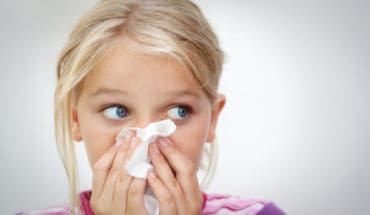74% of the Public support Government action on obesity in the wake of emerging links with COVID-19. Polling shows strong backing for action on junk food marketing and promotions.
Emerging research suggests there is a link between obesity and adverse outcomes from COVID-19; and now people want the government to address obesity with policy interventions including those that address the food environment. These include changes to how unhealthy food can be marketed and promoted, according to new polling data from the Obesity Health Alliance.
74% of people support a drive from the Government to address obesity and 70% say this should now be more of a priority, upon knowing about the potential link with COVID-19 complications. This comes after Prime Minister Boris Johnson has reportedly vowed to take a more interventionist stance in helping the nation reach a healthier weight, following his own experience with the virus.
A recent Public Health England review of available research to date on disparities in the risk and outcomes from COVID19, reported an increased risk of adverse outcomes in people with a weight classed as obese or morbidly obese.[1]
The polling data shows strong backing from the majority of the public for a range of policies designed to shape a healthier food environment.
· 78% of people support manufacturers reducing sugar from everyday foods.
· 74% of people support not showing adverts for junk food before 9pm on TV and online.
· 72% of people support restrictions on shops promoting unhealthy foods in prominent areas such as checkouts and shop entrances.
· 62% of people support restrictions on promotional offers (e.g. buy-one-get-one free) on unhealthy foods in supermarkets.
· 63% of people support the extension of the sugar tax from soft drinks to other sugary and high calorie foods (such as sweets and biscuits).
The poll also showed high public support for a national plan to improve public health (79%), and more support for physical activity schemes (78%).
Regulation has been effective at creating a healthier food environment. For example, the average sugar content of drinks subject to the Soft Drinks Industry Levy (SDIL) decreased by 29% between 2015 and 2018 compared to just a 3% reduction in average sugar content among retailer and manufacturer branded products included in the voluntary sugar reduction programme.[2]
Many of these suggested policies, such as a 9pm watershed on junk food adverts and restrictions on unhealthy food promotions were consulted on by the Government in the first half of 2019. However, progress has stalled since then.
Caroline Cerny, Alliance Lead at the Obesity Health Alliance said: “The Government can now feel confident that the game-changing policies needed to transform our environment into a healthier one are not only evidence-based, but also wanted by the majority of people in the UK. We are now calling on the Government to push ahead with a comprehensive plan to make it easier for us all to be healthier, now and in the future by taking unhealthy food out of the spotlight.”
Professor John Wass, Consultant Endocrinologist and adviser to the OHA said: “We now have an unparalleled opportunity to bring about sustained changes to our environment. We can then build a robust population, resilient to all kinds of disease and able to contribute to a strong society, Obesity is not a choice individuals make and we strongly encourage the Government to move ahead with bold action.”
Currently about a third of the UK population has a weight classed as obese or overweight, and this has major implications for individuals’ wellbeing and productivity, and can add to pressures on the NHS. Obesity also increases the risk of many other diseases including Type 2 diabetes, cancer, heart and liver disease. We also know that the poorest in our society are disproportionately affected by obesity and related diseases. That makes reducing obesity a key route to a fairer society for all.
[1] PHE. (2020). Disparities in the risk and outcomes of COVID-19.
[2] PHE. (2019). Sugar reduction: Report on progress between 2015 and 2018.
- Ketogenic diet could help prevent epileptic seizures - 16th January 2026
- What really happens to the plastic you throw away - 16th January 2026
- Plastic particles can increase intestinal inflammation - 16th January 2026







